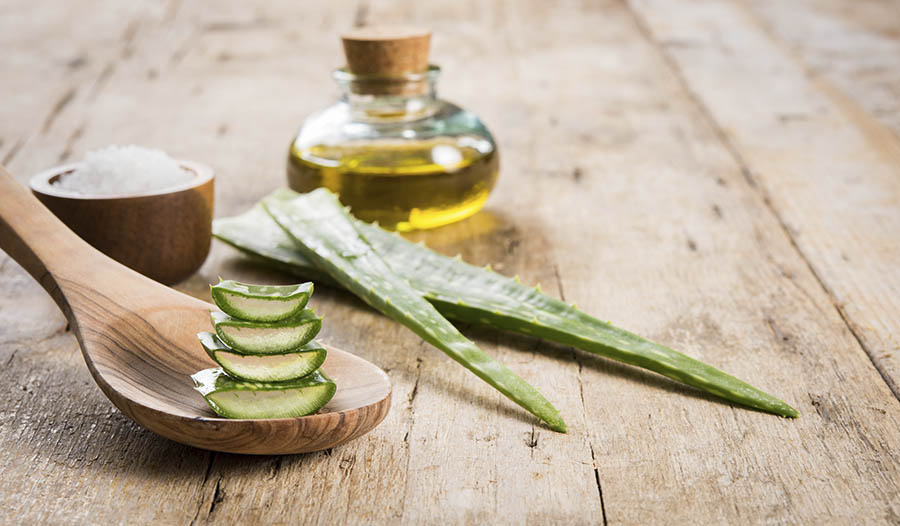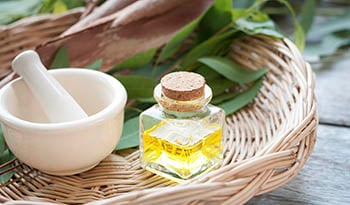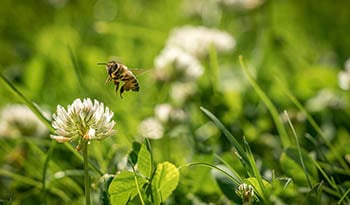8 Home Remedies for Canker Sores
DISCLAIMER:This blog does not intend to provide diagnosis...
- In this article:
- What Is a Canker Sore?
- What Causes a Canker Sore?
- Natural Remedies for Canker Sores
- Takeaway

Updated May 2022 / Originally posted October 2018
What Is a Canker Sore?
Canker sores (or aphthous stomatitis) are single groups of shallow, painful ulcers found in the mouth or gums. Canker sores are extremely common. For most people, they are an occasional inconvenience, but some people deal with recurrent canker sores. And in these people who suffer from recurrent canker sores may develop canker sores up to four times each year.
What Causes a Canker Sore?
A canker sore can be caused by several initiating factors such as trauma from biting your cheek, a toothbrush, or hard, sharp food, as well as food or chemical allergies/sensitivities (e.g., gluten, dairy, sodium lauryl sulfate, etc.), nutrient deficiency, and stress.
Is a canker sore the same as a cold sore?
Many people confuse canker sores and cold sores, but they are not the same. Cold sores or fever blisters may erupt secondary to infection or activation of the herpes simplex one virus. When the virus infects or re-emerges, painful blisters appear on the outside of the mouth on, above, or below a lip, around the nose, or under the chin area. While canker sores are not contagious, cold sores are indeed contagious.
Natural Remedies for Canker Sores
Canker sores generally can last from one to three weeks. However, the sores may last up to six weeks in some cases. In more severe instances, the lesions may be accompanied by a fever, swollen lymph glands, and general malaise.
Here are 8 remedies to help hasten the healing process.
Remedy #1 – Bolster Nutritional Status
A nutritional deficiency can affect the lining of the oral cavity first due to how quickly the cells line the surface turnover. Several studies show nutrient deficiencies are quite common in people who suffer from recurrent canker sores. Thiamin, folic acid, B12, B6, iron, and zinc are the most common deficiencies.1-5 Correcting an underlying nutrient deficiency leads to complete prevention of future canker sores in about half of all cases.
Taking a high potency multiple vitamin and mineral formula may ensure adequate intake of all the nutrients linked to recurrent canker sores. Still, it is also very worthwhile to take advantage of the wound healing properties of a zinc lozenge. Several clinical studies have shown zinc supplementation (usually 12 to 45 mg elemental zinc daily) to be helpful in both preventing recurrent canker sores as well as healing current sores.5
Remedy #2 – Eliminate food allergies
Several studies indicate that food allergies or sensitivities can lead to recurrent canker sores.6 Not surprisingly, avoiding offending foods or compounds in the diet results in a significantly reduced frequency or complete remission in many people dealing with recurrent canker sores.
Common food allergens are gluten and wheat, dairy, eggs, soy, peanuts, and citrus. Eliminate these foods for at least ten days and then reintroduce one of these foods into the diet every two days. Reintroducing an offending food will typically produce a more severe or recognizable sign/symptom than before, allowing for easy identification of a food allergy or intolerance.7
Remedy #3 – Avoid acidic foods
Eating acidic fruits and vegetables and fermented vegetables may cause a canker sore to appear or irritate and worsen the lesion. Grapefruit, lemons, oranges, pineapples, and tomatoes are common high acid foods that may aggravate canker sores and lead to additional eruptions.
Remedy #4 – Be careful with hard or sharp foods
In addition to toothbrushes, foods like nuts, chips, and other sharp snack foods can damage healthy tissues and cause canker sores or disrupt the healing process of existing sores. Be careful when eating these foods and if dealing with an active canker sore, consider avoiding altogether.
Remedy #5 - Avoid toothpaste or oral rinses containing sodium lauryl sulfate
Sodium lauryl sulfate (SLS) is a common detergent added to toothpaste to create a foaming action when we brush our teeth. SLS can irritate the lining of the mouth and cause canker sores.8 Most major toothpaste brands use SLS. Fortunately, there are natural toothpaste options that are SLS-free.
Remedy #6 – Warm saltwater rinse
A warm salt water rinse for canker sores is a time-honored home remedy. It works wonders. The warm saltwater coagulates the lesion and also has analgesic properties. Combine a teaspoon of sea salt with four ounces of warm water. Swish the solution in the mouth for 30 seconds, then spit it out. Can be done up to three times a day until complete healing occurs.
Remedy #7 – Deglycyrhhizinated licorice (DGL)
For immediately healing canker sores, DGL (deglycyrrhizinated licorice) is a great option. This unique licorice extract has shown significant healing effects on canker sores. In one study, 15 of 20 subjects with canker sores experienced 50 to 75% improvement within one day, followed by complete healing of the ulcers by the third day. Chew one or two 380 mg chewable tablets of DGL twenty minutes before meals.
Remedy #8 – Aloe vera gel
Ancient people worldwide long favored the aloe vera plant for its healing properties. Aloe vera gel contains nutrients and phytochemicals that promote healing and much-needed tissue nourishment. Mix one ounce of Aloe Vera 100% Gel and 2.5 ounces (a shot) of water and swish in mouth for one minute and can be swallowed. Do this approach up to three times a day until complete healing occurs.
Takeaway
An occasional canker sore may result from trauma, and that trauma sometimes occurs completely unnoticed. A warm salt water rinse may be the simplest and best approach in that circumstance. However, in people with recurrent canker sores, every one of these eight recommendations may be necessary for preventing future occurrences or speeding up the healing process in a current canker sore.
References:
- Wray DW, Ferguson MM, Hutcheon AW et al. Nutritional deficiencies in recurrent aphthae. J Oral Path 1978; 7: 418–423
- Nolan A et al. Recurrent apthous ulceration. Vitamin B1, B2, and B6 status and response to replacement therapy. J Oral Pathol Med 1991; 20: 389–391
- Wray D, Ferguson MM, Mason DK et al. Recurrent aphthae: treatment with vitamin B12, folic acid, and iron. Br Med J 1975; 2: 490–493
- Chiang CP, Yu-Fong Chang J, Wang YP, Wu YH, Wu YC, Sun A. Recurrent aphthous stomatitis - Etiology, serum autoantibodies, anemia, hematinic deficiencies, and management. J Formos Med Assoc. 2019;118(9):1279-1289.
- Halboub E, Al-Maweri SA, Parveen S, et al. Zinc supplementation for prevention and management of recurrent aphthous stomatitis: a systematic review. J Trace Elem Med Biol. 2021;68:126811.
- Wardhana, Datau EA. Recurrent aphthous stomatitis caused by food allergy. Acta Med Indones. 2010;42(4):236-240.
- Hay KD, Reade PC. The use of an elimination diet in the treatment of recurrent aphthous ulceration of the oral cavity. Oral Surg 1984; 57: 504–507
- Alli BY, Erinoso OA, Olawuyi AB. Effect of sodium lauryl sulfate on recurrent aphthous stomatitis: A systematic review. J Oral Pathol Med. 2019;48(5):358-364.
- Das SK, Gulati AK, Singh VP. Deglycyrrhizinated liquorice in aphthous ulcers. J Assoc Physicians India 1989; 37: 647
- Gok Metin Z, Helvaci A, Gulbahar Eren M. Effects of Aloe vera in adults with mucocutaneous problems: A systematic review and meta-analysis. J Adv Nurs. 2021;77(3):1105-1126.

 By Dr. Michael Murray, N.D.
By Dr. Michael Murray, N.D. 


